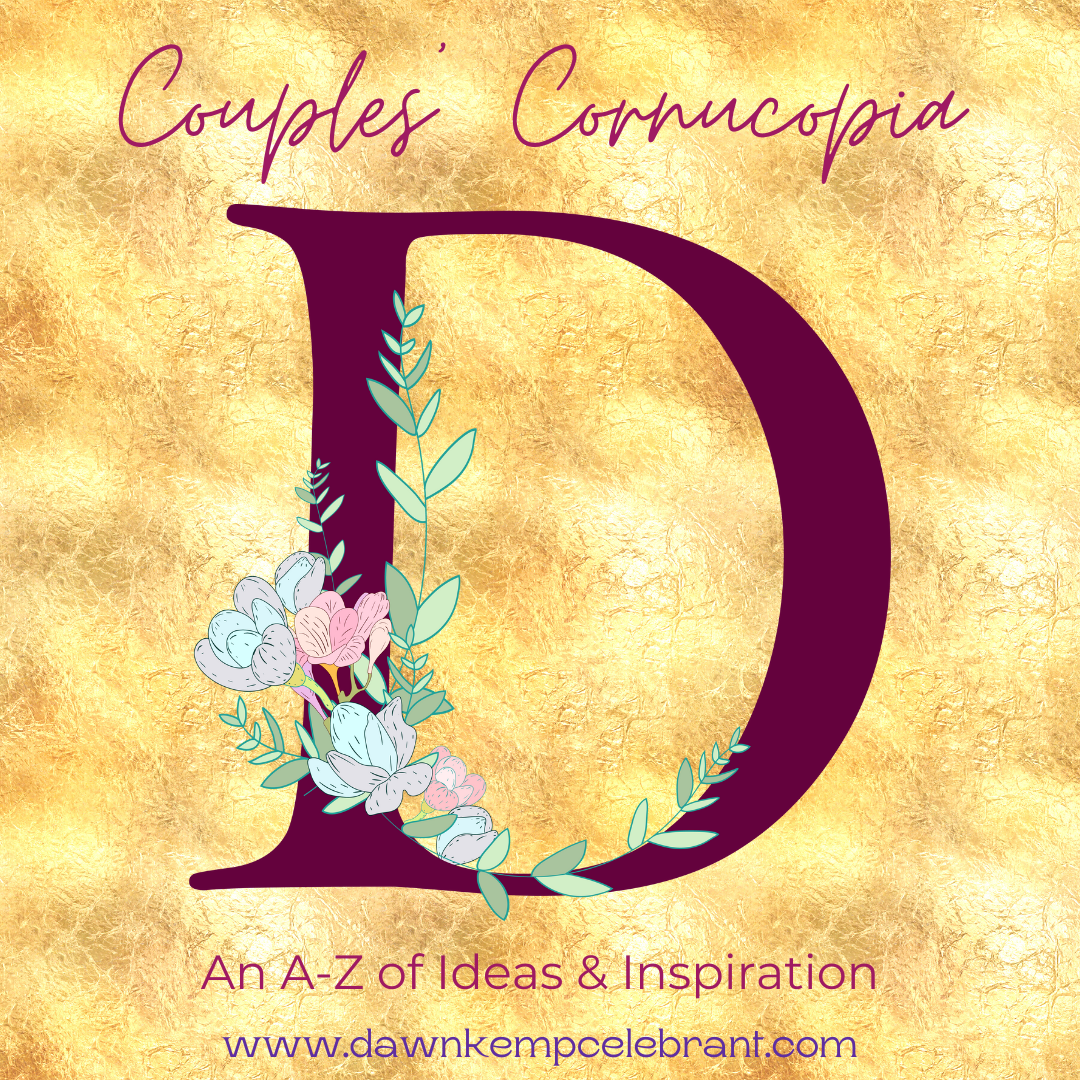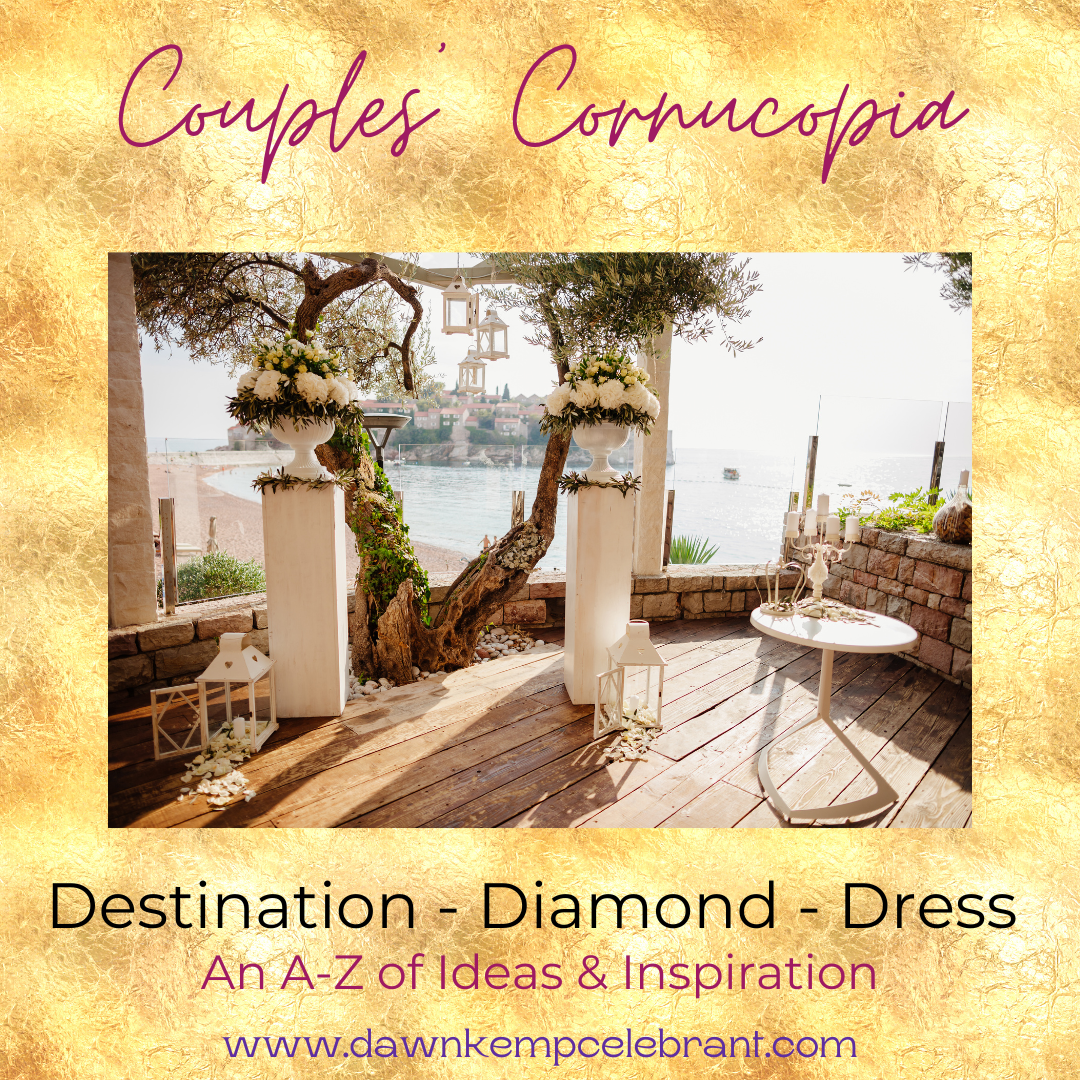|
inspiration for your wedding, civil partnership or vow renewal 3 Ideas – 3 Venues – 3 Suppliers Destination
Destination weddings take place away from the area the couple reside in. It’s not always somewhere abroad; it may be a county or two away. There are specialist wedding travel companies and wedding planners who are experts in helping you plan your destination wedding, and check you’ve thought of practical issues, such as vaccinations, whether there are requirements debarring your preferred destination, such as lack of marriage equality or residency requirements (although some may only require you to be there a few days beforehand), the time left on your passports, necessary paperwork (birth or adoption certificates, deed poll etc), and obtaining a CNI (Certificate of No Impediment) if required. Places that are easier to marry in include: New York, Italy, Gibraltar, Cyprus and the Caribbean. If you’re thinking of marrying abroad, check here first: https://www.gov.uk/marriage-abroad It’s a popular way to enjoy a holiday feel celebration with your guests, and it may work out cheaper to marry abroad than in the U.K. If it’s an intimate wedding, you may be paying for your guests to join you. If you are having a U.K. celebrant go with you, as well as their fee, you’d pay their travel costs and basic accommodation. Do check if the ceremony will be ceremonial only or be legally binding. There are helpful guides at: https://www.thecelebrantdirectory.com/tag/destination-wedding/ Diamond A diamond ring worth three months of the proposer’s salary is the expectation for an engagement ring, but why? Let’s look at the giving of a ring, and then where diamonds come in. Historically, weddings were less about love matches and more about an exchange contract: joining families, political allegiance, and ownership. Engagement rings of iron, and later gold, were worn in Ancient Rome as a sign of mutual obedience and a wedding promise. In the 1940s, de Beers, the British company mining South African diamonds, advertised with the strapline ‘a diamond is forever’ popularising the diamond as the gem of choice. There is a notion that diamonds are rare – when in fact they are (now) a relatively common precious stone. Emeralds, rubies and sapphires are rarer, as is gold. However, good, clear diamonds are scarcer, pushing up the price. They are prized for their brilliance and durability – with a maximum 10 on the Mohs scale of hardness. Increasingly there is awareness of ethical diamond mining, with fairer wages and conditions. There are plenty of diamond alternatives, and to the casual eye, few will know the difference, without a test (E.g., the breath fogging, or reading newsprint under the diamond) but unless they’re a jeweller with a loupe to hand, that’s probably a bit rude! If a diamond ring is not for you (or indeed, no ring, or rings for you both – why not?); that’s fine – remember, it’s only carbon under pressure! Dress About 80% of brides will wear a white bridal gown, or white with an undertone of colour – ivory, champagne, eggshell. It is seen as the ‘traditional’ colour, but this is relative to time and culture. White as a marker of ‘purity’ is at odds with contemporary mores, and may be a concept that is retrofitted. Blue is the colour associated with the Virgin Mary, and in Spain, the Catholic tradition is a black dress with lace mantilla representing a bride’s pledge to her spouse ‘until death do us part’- it was a common colour in Germany too. Queen Victoria wore white to wed Albert, and when he died, adopted black as mourning wear. Sunday black fell out of favour, and white rose in popularity. White may have become the norm, not as a symbol of virginity, but of social status and wealth – being impractical and hard to keep clean. White is a ‘western’ colour; in India it is associated with funerals, so brides are more likely to wear red, as in China, where red brings good luck and prosperity. Increasingly, brides, whether first time or not, opt for colour and practicality, and may swap a dress for a trouser suit or jumpsuit. Eco-minded brides may hire or buy preloved, and consider the ‘what next’ – converting their dress, or donating it to make angel gowns. Links: Venues D Remember – a celebrant-led ceremony of any type can take place at any venue; it doesn’t have to be licensed for civil weddings/partnerships. Here are some venues for a Lincolnshire or Yorkshire wedding. Dower House Hotel, Woodhall Spa https://www.dowerhousehotel.co.uk/ https://www.facebook.com/thedowerwoodhallspa/ https://www.instagram.com/thedower/ Doddington Hall, Lincoln https://www.doddingtonhall.com/ https://www.facebook.com/DoddingtonHallAndGardens/ https://www.instagram.com/doddingtonhall/ Dunedin Country House, Hull https://www.dunedincountryhouse.co.uk/ https://www.facebook.com/DunedinCountryHouse https://www.instagram.com/dunedincountryhouse/ Suppliers D Dandrew Photography https://www.dandrewphotography.co.uk/ https://www.facebook.com/DandrewPhotos https://www.instagram.com/dandrewphotography/ Danny Inwood Photography https://www.dannyinwoodphotography.com/ https://www.facebook.com/Dannyinwoodphotography/ https://www.instagram.com/danny_inwood_photography/ Debbie Roe Photography (Family & Newborn) https://www.facebook.com/people/Debbie-Roe-Photography https://instagram.com/debbie_roe_photography
0 Comments
|
From DawnWelcome to the blog. Contact me if there's anything you'd like me to cover about celebrants, ceremonies (including weddings, namings, funerals) or related topics such a s vow writing, funeral planning etc. Archives
July 2024
Categories
All
|



 RSS Feed
RSS Feed
